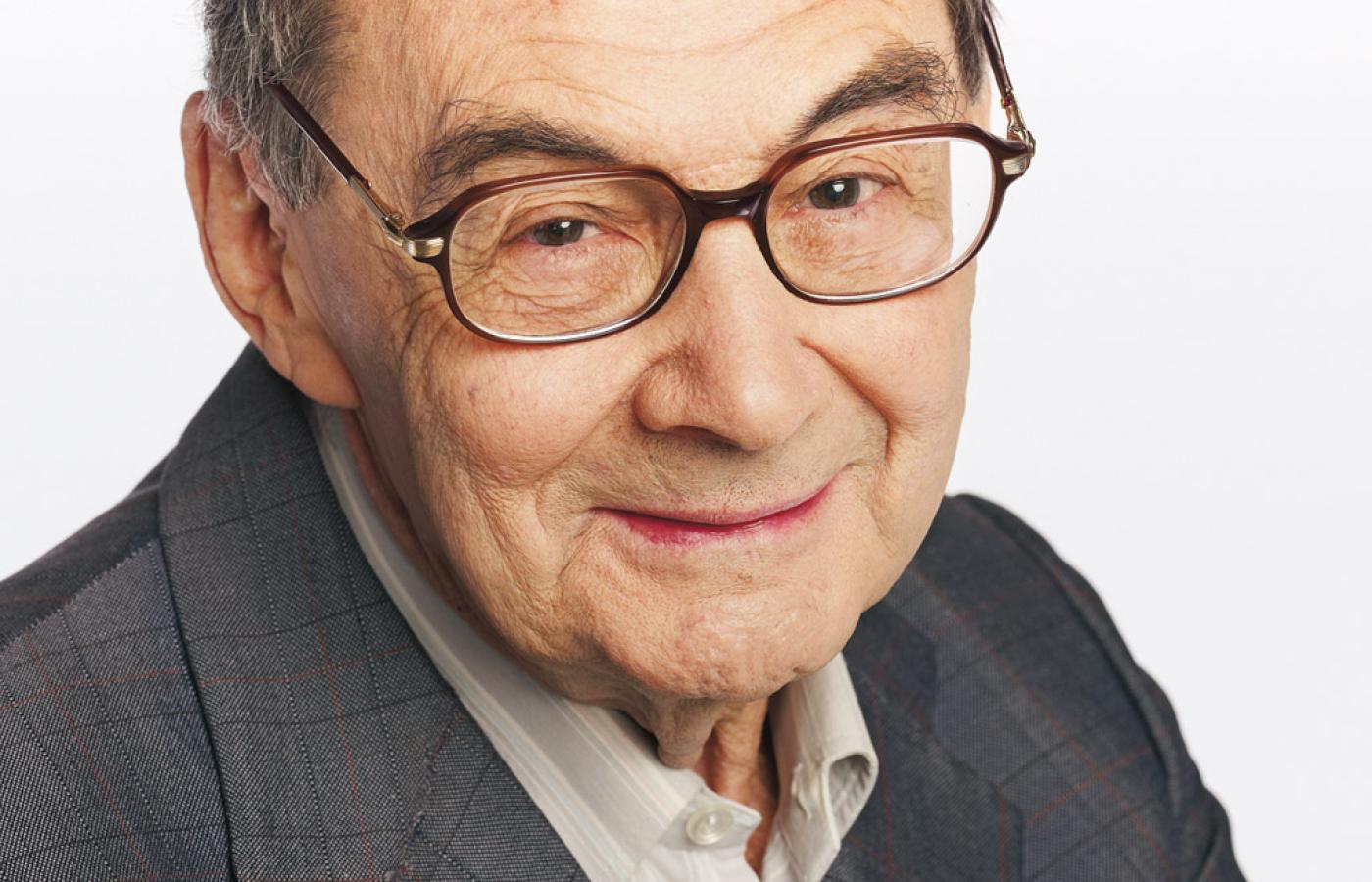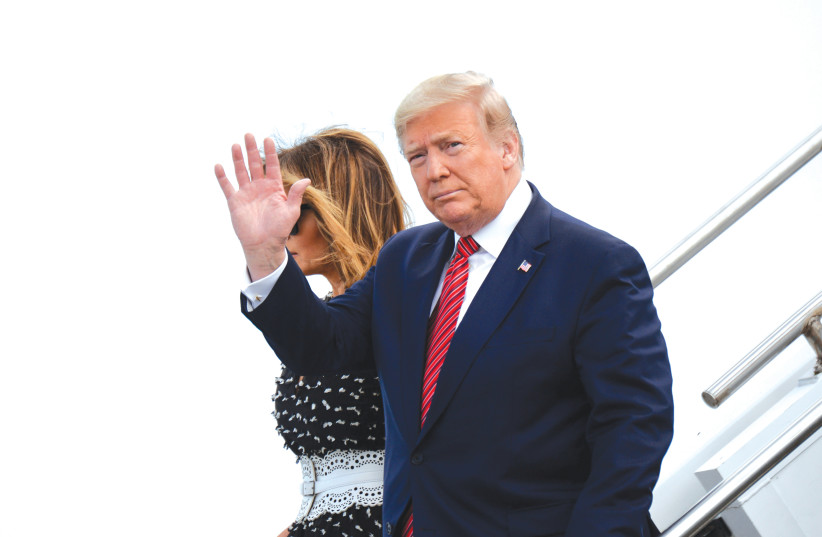 Marian Turski dostanie tego Nobla! Zobaczycie!
Marian Turski dostanie tego Nobla! Zobaczycie!
Jan Hartman

Chodzą słuchy, że udało się prawidłowo zgłosić kandydaturę Mariana Turskiego do Pokojowej Nagrody Nobla! Czas był do 1 lutego, a wynik poznamy w październiku.
Procedura składania wniosku wymaga pełnej dyskrecji, a przeto nie wiemy i przez pół wieku nie dowiemy się, którzy spośród uprawnionych byłych laureatów, dygnitarzy lub profesorów złożył dokumenty nominacji. A może sam Barack Obama, u którego Marian bywał, gdy szukał w USA funduszy na budowę Muzeum Historii Żydów Polskich? Można przypuszczać, że również Lech Wałęsa – przecież musi znać i cenić Mariana Turskiego. To spekulacje, ale jakże miłe.
Pewnie myślicie, że chodzi tylko o zgłoszenie, że już to jest wielki prestiż i radość. Tak jak z nominacjami do Oscara, prawda? Że może to taka gra na wzmocnienie Mariana Turskiego w trudnych rozmowach z ministrem Glińskim, który odmawia nominowania prof. Stoli na stanowisko dyrektora Polin mimo wygrania przez niego konkursu?
A ja sobie myślę, że to nie tak. Podobno to był najszczerszy odruch naczelnego „Polityki” Jerzego Baczyńskiego w reakcji na słynne przemówienie z Auschwitz, którego słucha cały świat (to już nie pierwsze takie!), i podobno ta wspaniała inicjatywa redakcji „Polityki”, której Marian jest przecież członkiem (jako szef działu historycznego) od z górą sześciu dekad, ma w istocie zamysł skromny – nie towarzyszy jej wiara w pełen sukces.
Owszem, będzie bardzo miło, gdy za kilka miesięcy będziemy czytać spekulacje i przecieki na temat Mariana Turskiego. Ale ja wierzę, że na tym się nie skończy. Moimi zdaniem on tego Nobla dostanie! Dlaczego tak myślę?
Być może znów jest zgłoszona Greta Thunberg, która nie otrzymała nagrody w zeszłym roku, choć była blisko. W takim razie w tym roku też przegra – po prostu Greta ma jeszcze czas, bo ma lat 17. A Marian nie ma, bo ma lat 93. A czy oprócz Grety jest jakiś mocny, znany w całym świecie kandydat, zwłaszcza taki, który dokonał czegoś wyjątkowego w 2019 r. lub nieco wcześniej? Ja nie widzę. Marian będzie konkurował z setkami innych wspaniałych ludzi, znanych milionom (lecz nie miliardom), ale znacznie młodszych od siebie.
A tu właśnie czas się liczy. Jeśli Komitet Noblowski miałby uhonorować Ocalałych z Zagłady, przyznając nagrodę wybitnie zasłużonej osobie, która przeżyła Holokaust, to więcej okazji mieć nie będzie. Marian jest dzisiaj nestorem – jednym z bardzo nielicznych Ocalałych, którzy są zawodowo czynni, wpływowi i znani. Być może jest nawet największym autorytetem pośród tej garstki – no i to właśnie on jest nominowany! No i teraz mamy 75 lat od zakończenia Holokaustu. Czyż nie jest to najlepszy moment?
Szanse byłyby małe, gdyby ktoś taki już otrzymał Pokojową Nagrodę Nobla. Owszem, była już taka osoba – wielki działacz na rzecz pamięci o Holokauście i wybitny pisarz Elie Wiesel. Ale to było 34 lata temu. Naprawdę dawno.
A tymczasem od kilkunastu lat faszyzm znów podnosi swój tępy ogolony łeb, pamięć o Zagładzie się zaciera, a antysemityzm narasta w całym świecie. Lewicowi intelektualiści, którzy mają w sprawie Nobla najwięcej do powiedzenia, są na te sprawy bardzo wrażliwi. Owszem, być może Polska kojarzy im się źle, a nawet polski Żyd, mieszkający wciąż w Polsce, może im wydawać się dziwny (wszak nasz kraj ma reputację takiego, z którego „porządni Żydzi” wyjechali), lecz z drugiej strony decydenci wiedzą, że Nobel dla Polaka może pomóc w ratowaniu naszej demokracji, a dzieło życia Mariana Turskiego – Muzeum Polin – jest zapewne znane z autopsji przynajmniej niektórym członkom Komitetu.
A jeśli nie, to zapewne każdy z nich słyszał choć jedno z kilku światowych przemówień wygłaszanych przez Turskiego na forum ONZ czy UNESCO. Może polskość Mariana w ostatecznym rozrachunku mu nie pomaga – ale to, że nie jest zbyt „amerykański” ani zbyt „izraelski”, akurat raczej wzmacnia jego szanse. No i czy nie byłby piękną parą dla Olgi Tokarczuk?
Kto zaś Mariana słuchał, ten nie może nie dać mu Nobla! A tym bardziej gdy ktoś zna go osobiście. I ja mam ten zaszczyt – znam Mariana od kilkunastu lat i nieodmiennie jestem nim oczarowany. To człowiek o niebywałej charyzmie i mądrości, które łączy z najbardziej bezpretensjonalnym urokiem osobistym i coraz bardziej – z biegiem lat – zdumiewającą żywotnością. Jako świadek historii mówi nam rzeczy proste, których uderzająca słuszność, podbita nieodpartym autorytetem świadka, zadziwia, zawstydza i daje nadzieję. A także zamyka gęby (nie wszystkie, jak wiemy) faszystów i żydożerców.
Marian jest chagallowskim aniołem – postacią balsamiczną i niezbędną dla istnienia świata. Równie wyjątkowy jak Marek Edelman, jest jego komplementarnym przeciwieństwem. Jak cywil i żołnierz. No i najważniejsze – Marian prowadzi niestrudzoną działalność na rzecz pamięci o Zagładzie jako nieustającej przestrodze, nakazującej nam szukać pokoju, a nie wojny, szacunku i porozumienia w miejsce niechęci i nienawiści. Bo Marian Turski jest prawdziwym posłańcem zaświatów, który po to zstąpił do piekieł, by powrócić i dodawać nam siły. Jego przeżycia są niepojęte w swej grozie – a przecież nie wszystko nam mówi!
I że Marian nie zwariował, lecz przez całe 75 lat po tym wszystkim pracował i robił wspaniałe rzeczy – aż do lat ostatnich, najbardziej twórczych w jego życiu – to jest jakiś cud, cud na miarę Nobla.
I on tę nagrodę cudem dostanie! Ja wam to mówię! Do dwóch polskich pokojowych noblistów – Wałęsy i Rotblata – w 2020 r. dołączy MARIAN TURSKI! Jednak żeby tak się naprawdę stało, musimy się zmobilizować. Mówmy wszyscy, gdzie się da, o Marianie, pokazujmy jego wypowiedzi, przypominajmy o jego dokonaniach. Pokojowa Nagroda Nobla musi mieć za sobą ducha, siłę społeczną wyczuwalną dla członków Komitetu.
Pokażmy tę siłę. Obierzmy sobie Mariana Turskiego za przywódcę duchowego demokratycznej i pokojowej Polski, patrona tej prawdziwej dobrej zmiany, na którą tak czekamy. Bez patosu, z uśmiechem, tak „po Turskiemu”. I się spełni!




